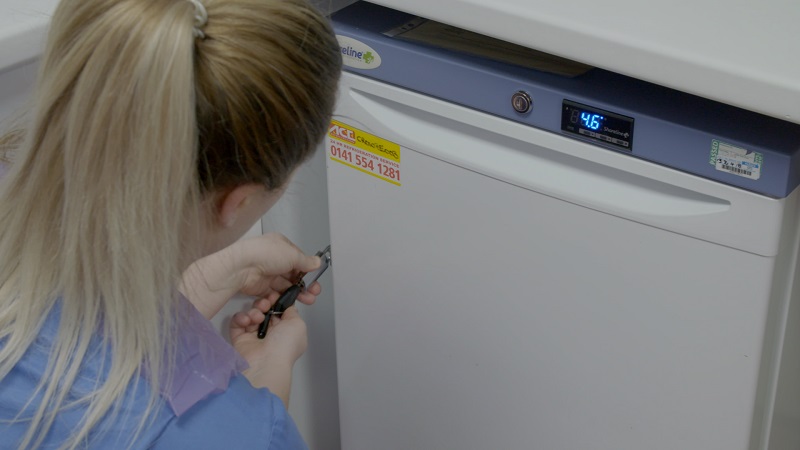Abloy UK has supplied University Hospital Crosshouse (UHC), Kilmarnock, with PROTEC2 CLIQÒ and Traka21 key management solutions for drug cabinets.
The installation was on Ward 3E, the only acute stroke unit (ASU) covering all of NHS Ayrshire & Arran.
The organisational aim is to deliver high-quality and safe care to every person, every time, and the strategic direction is based on continuous improvement and services centred on patients.
Within the ASU, many patients require life-saving medication, so it is essential they are administered on time to improve outcomes and experience.
There can be up to seven registered nurses on shift at any one time, and previously the nurse in charge would hold the only key to the drug cabinets. This could result in delays to medication administration, plus there was no robust audit trail of access to the medication cupboards, and the risk of cupboards being left unlocked with no way of identifying who had not secured them. If the key went missing it could also result in a delay to treatment.
The ASU trialed a bespoke solution, installed by Maclean UK locksmiths, combining PROTEC2 CLIQÒ, three Traka21 key cabinets, and EL160 lock case compliant to British Standard EN179.
PROTEC2 CLIQÒ is an easy-to-use access control system based on mechanical, high-security disc cylinders combined with highly-encrypted electronic locking and identification.
Power to the lock is provided by the CLIQÒ key, therefore no batteries or wires are required to either the lock or drug cabinet, making it an ideal retrofit solution – even for applications such as mobile drug trolleys.
The system allows for remote key management, providing comprehensive audit trials on locks and padlocks. Furthermore, it has the ability to remove lost or stolen keys from the system, increasing the security of medication and saves costs on replacing lost keys and installing new cylinders.
PROTEC2 CLIQÒ was combined with the Traka21 key management system, by simply entering a PIN code to access a specific key which they validate using the wall programming unit. Following this they can access every cabinet they’re authorised to open.
Senior charge nurse, Christine Somerville, said: “Once all staff knew how to access the key system, ensuring each key was charged and returned to the cabinet at end of the shift, the feedback from all was very positive.
“It is difficult to measure how much nursing time was saved, but there is no doubt it does.
“Most importantly, though, it results in patients getting essential medication in a timely manner and care is centred on the patient, with enhanced accountability for the nurse.”

The installation is undoubtedly saving nursing time as well as enhancing patient outcomes
Following the trial and positive results, the system was implemented on the ward.
The nursing time saved, improved patient care through timely medication administration, and enhanced security demonstrated this would be a cost efficient system.
Somerville said: “There is no doubt the new key system has improved patient care and released nursing time.
“There is now no avoidable delays in medication administration, and the audit trail has improved security of medication and governance.”
Rory Grant, regional specification development manager at Abloy UK, added: “Giving each individual nurse an access key allows drugs to be administered so much faster, and we are extremely pleased with the positive impact provided by the system and are optimistic to expand into more wards throughout the hospital.”
